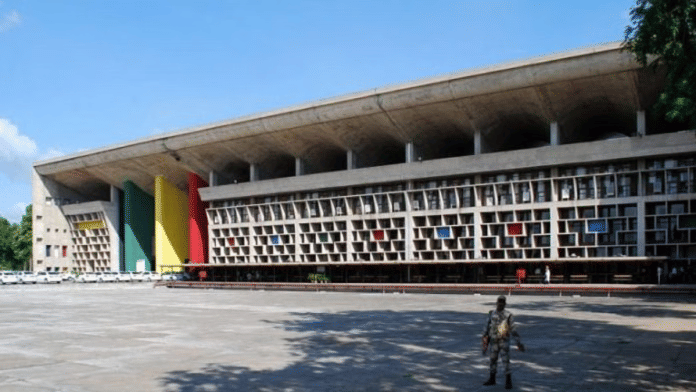Gurugram: In a judgment having far-reaching implications for Haryana’s property resumption policy, the Punjab and Haryana High Court has ruled that government authorities cannot resume properties once a conveyance deed has been executed, declaring such actions contrary to Article 300A of the Constitution.
Resumption of a plot is a process under which the Haryana State Industrial and Infrastructure Development Corporation (HSIIDC) can take back plots allotted to an industry if an allottee violates the terms and conditions of the allotment, transfer, or leasing agreement, including non-payment of dues.
As similar rules govern residential properties allotted by the Haryana Shehri Vikas Pradhikaran (HSVP), the court’s decision comes as relief for property owners facing similar threats from government agencies. It establishes the rule that once a conveyance deed is executed and registered, authorities cannot unilaterally cancel property rights without following due legal process through civil courts.
The ruling comes after the HC quashed a 2016 resumption order by which the Haryana government had taken back an industrial shed allotted to Penguin Enterprises Private Limited in Gurugram’s Electronic City.
The industrial shed in Sector-18, Gurugram, was allotted in 1994, with possession handed over in July 1997. A conveyance deed was executed in September 2006, conferring “complete right, title and interest” to the petitioner.
State authorities had begun the proceedings in October 2016 on the grounds that the company failed to implement its approved project within the stipulated one-year timeframe as mentioned in the agreement. The company was also served with an eviction notice in August 2019.
In their judgment dated 8 April, the division bench comprising Justices Sureshwar Thakur and Vikas Suri termed the resumption “completely arbitrary” and directed the state to pay Rs 5 lakh as exemplary compensation to the company.
The bench observed that after execution of a registered conveyance deed, only a civil court of competent jurisdiction has the power to rescind such a deed, and that too only after proper proceedings.
“The empowerment to rescind or cancel the registered deed of conveyance is solely vested in the civil court of competent jurisdiction,” Justice Thakur noted in the judgment.
The HC emphasised that while the original agreement to sell contained a clause allowing resumption if commercial production did not commence within a year, this condition was absent in the final conveyance deed. It, therefore, ruled that the clause became “completely ineffective or unenforceable” against the rights acquired by the company.
Highlighting constitutional protections, the bench observed that allowing such resumption would amount to “unjust expropriation” of property rights and would violate Article 300A, which protects citizens against deprivation of property except by authority of law.
The bench rejected the state’s reliance on an arbitration clause in the conveyance deed, calling it “cleverly introduced” to “untenably restrict or scuttle the rights of the vendee.”
The petitioner, represented by advocate B.B. Bagga, had contended that none of the notices were ever served at the company’s registered office or at the address mentioned in the conveyance deed.
(Edited by Tony Rai)
Also Read: What SC said in order resolving dispute over failed multimedia-cum-film city in Chandigarh






